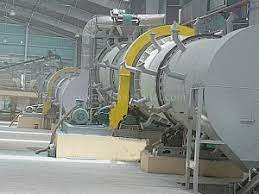
Introduction:
Cars are marvels of modern engineering, combining intricate mechanical systems with advanced electronics. However, no matter how well-designed they are, cars are not immune to wear and tear. From minor scratches to major malfunctions, every vehicle will require repair at some point in its lifespan. Understanding the basics of kfz gutachter mönchengladbach can save you time, money, and frustration. In this article, we’ll explore the fundamentals of car repair, empowering you to tackle common issues and make informed decisions when seeking professional help.
Understanding Your Vehicle:
Before diving into repair procedures, it’s essential to familiarize yourself with your vehicle. Every car comes with an owner’s manual, serving as a comprehensive guide to its components, maintenance schedule, and troubleshooting tips. Take the time to read through it, paying close attention to sections on warning lights, fluid levels, and recommended service intervals. Additionally, familiarize yourself with the basic anatomy of your car, including the engine, transmission, brakes, and suspension.
Diagnostic Tools:
Diagnostic tools are indispensable for identifying car problems accurately. While professional-grade diagnostic equipment is available at auto repair shops, there are also consumer-level tools that allow you to perform basic diagnostics at home. OBD-II (On-Board Diagnostics) scanners plug into your car’s OBD port and provide diagnostic trouble codes (DTCs) indicating specific issues. Smartphone apps paired with Bluetooth or Wi-Fi adapters offer a user-friendly interface for reading and interpreting these codes.
Basic Maintenance:
Regular maintenance is the key to keeping your car running smoothly and preventing costly repairs down the road. Here are some essential maintenance tasks every car owner should know:
- Oil Change: Regularly changing your engine oil and oil filter is crucial for engine longevity. Consult your owner’s manual for the recommended oil type and change intervals.
- Fluid Checks: Monitor levels of coolant, brake fluid, transmission fluid, and power steering fluid regularly. Low fluid levels can lead to overheating, brake failure, and transmission issues.
- Tire Care: Inspect tire tread depth, inflation pressure, and overall condition monthly. Rotate tires every 5,000 to 7,000 miles to ensure even wear.
- Battery Maintenance: Clean battery terminals regularly to prevent corrosion. Test the battery voltage periodically and replace it if it’s old or failing.
- Air Filter Replacement: A clogged air filter restricts airflow to the engine, reducing performance and fuel efficiency. Replace it according to the manufacturer’s recommendations.
Common Repairs:
While some car repairs require specialized knowledge and equipment, many common issues can be addressed with basic tools and DIY skills. Here are a few examples:
- Replacing Brake Pads: Worn brake pads can lead to decreased stopping power and potential damage to the brake rotors. With the right tools, replacing brake pads is a straightforward process.
- Changing Spark Plugs: Faulty spark plugs can cause misfires, rough idling, and decreased fuel efficiency. Consult your owner’s manual for the recommended spark plug type and replacement interval.
- Fixing a Flat Tire: Every driver should know how to change a flat tire. Make sure you have a spare tire, jack, and lug wrench in your car at all times.
- Replacing Headlights or Taillights: Burned-out headlights or taillights compromise visibility and safety. Most bulbs can be replaced easily with basic hand tools.
Knowing When to Seek Professional Help:
While DIY repairs can save you money, there are times when it’s best to leave the job to professionals. Complex issues such as engine diagnostics, transmission repair, and electrical problems often require specialized knowledge and equipment. Additionally, if you’re unsure about a repair procedure or lack the necessary tools, it’s safer to seek professional assistance to avoid causing further damage to your vehicle.
Conclusion:
Car repair is both